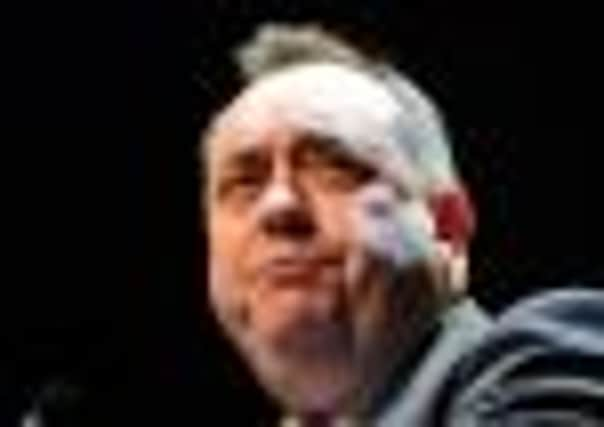Scottish independence: Alex Salmond accused over second question in referendum


Lamont, speaking at a Fabian Society conference, said the First Minister was striving to get a “consolation prize” and now appeared to be “fumbling for a reverse gear”.
Lamont’s comments came as an international elections expert, who has advised on Scotland’s voting system, warned that offering two questions to Scots would make the choice less clear.
Advertisement
Hide AdAdvertisement
Hide AdMichael Boda, the lead writer in an independent review of Scotland’s botched 2007 Scottish Parliamentary elections, told Scotland on Sunday the issue of independence was “big enough to warrant a referendum of itself. It seems to me that two questions takes away from the clarity that an individual voter would want.”
The SNP has said it would welcome the public’s views in its yet-to-be completed consultation on including a second question on further devolutionary powers in the referendum, planned for 2014. But, in her speech, Lamont argued that the debate around more devolution would be “at best defensive and at worse… distorted” if it was caught up in the vote.
All the focus should therefore be on the big question of independence, she said, adding: “Anything else is a recipe for incoherence when the dynamism of the debate about devolution is suffocated by the argument on separation.”
She went on: “This referendum should be clearly about Scotland’s future in the United Kingdom. It should not have a sub-clause aimed solely at saving Alex Salmond’s career. Even he surely sees that Scotland is bigger than him. Any move to an ill-defined second question will be seen as the First Minister fumbling for a reverse gear.”
The SNP hit back last night, saying Labour had “nothing positive to say on Scotland’s future”, adding it was “entirely confident of winning the case for independence”.
Meanwhile, Boda, who also investigated the 2000 US election debacle, said last night: “Often we lose sight that the voters are who we are interested in serving. I think it becomes more difficult to get clarity for the individual voter if you are asking a very long question and if you are asking more than one question.”
He praised the neutrality of the UK Electoral Commission, the body which will oversee the referendum, and suggested that, as an extra way of boosting confidence in the result, there should be “international representation” to “reinforce the point that this is not a partisan activity”.